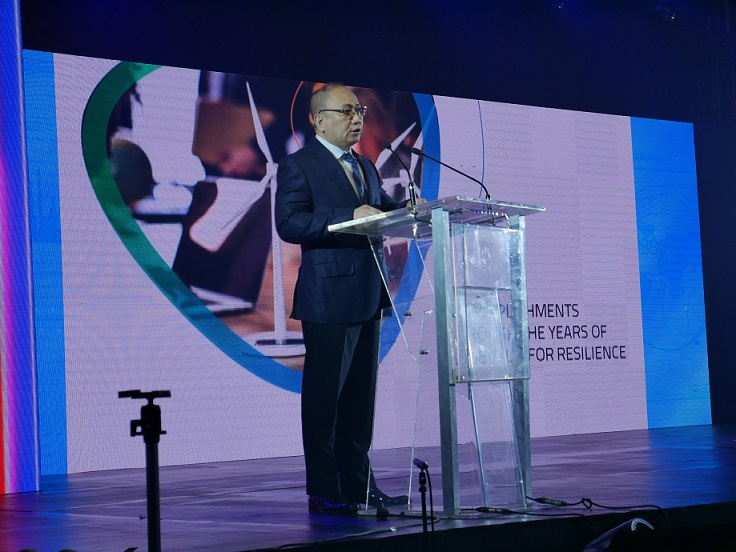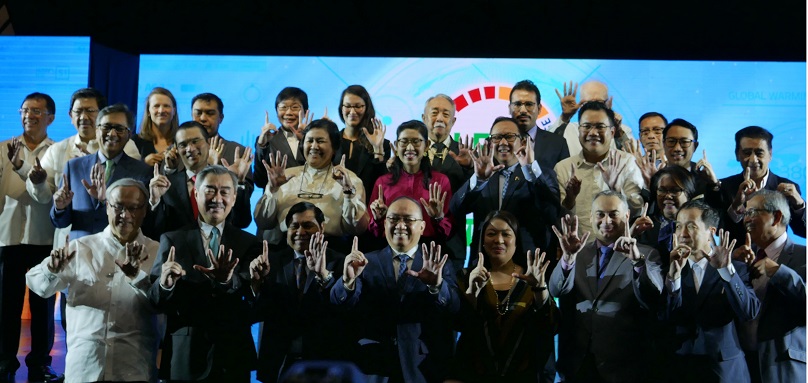
Climate Change Commission head Emmanuel de Guzman urges collective action to survive
the dire consequences of climate change.
The head of the Climate Change Commission urged Filipinos to take a stronger commitment to the protection of environment because studies show that Filipinos are among the worst affected by climate change.
“We, Filipinos, are among the worst affected by climate change,” said Sec. Emmanuel M. De Guzman of the Climate Change Commission (CCC) at the recent 9th Global Warming and Climate Change Consciousness Week of 2018, with the theme 1.5C Climate Challenge: Survive and thrive together.
De Guzman cited the “unprecedented tragedy” of Supertyphoon Yolanda that struck the country in 2013.
The Philippines experiences “natural disasters enough to place it among the countries that are most vulnerable to the negative effects of climate change,” according to a World Health Organization (WHO) report published in its website.
“It is the present generation’s moral responsibility to ensure the future generations will survive and thrive in a warmer world,” De Guzman said.
He reported that the CCC has been working closely with key government agencies and development partners in the following areas: adopting standard modules for promulgating concepts and methodologies for risk assessment, greenhouse gases inventory, enhancing local plans with ecosystems-based adaptation and mitigation frameworks to be quality assured against a set of standards that will soon be adopted jointly with the Department of Interior and Local Government (DILG).
“Climate action, as a collective task, has been the mission and leadership resolve of the Climate Change Commission,” declared De Guzman.

Environment advocates pose with the 1.5°C hand sign to show
support to limiting effects of climate change.
Senator Loren Legarda, chair of the Senate Committee on Climate Change, through a recorded video message for the forum, stressed the importance of inciting and sustaining local climate action.
““At the global stage, we are forging a bold, strategic vision for adaptation. But we must then contextualize our discussions on our efforts on the ground: climate action is local. For us in the Philippines, adaptation is a matter of survival. We have been urging both our public and private sectors to embrace adaptation and to work together for a secure and resilient future,” Legarda said.
The week-long Climate Change Consciousness program included a National Business Climate Action Summit with the theme of “Transforming Industries and Sectors towards Carbon Neutrality.”
There were various collaborative multi-stakeholder activities that focused on sharing of knowledge on climate change and disaster risk reduction policies, programs, innovation, best practices, and resources to pave the way for increased national and community resilience.
“This December, there is a tall order from all countries to finalize the work programme of the Paris Agreement in COP24 in Katowice, Poland. I hope that through these activities we also amplify our call for scaled up climate finance and inspire greater climate action from all nations,” Legarda said.
Simultaneous with the 2018 Climate Change Consciousness Week, President Duterte joined other heads of state and high-level policymakers in the first Virtual Leaders’ Summit of the Climate Vulnerable Forum (CVF).
In his message for CVF, the President, who is also the CCC Chair, said that since climate change is “a day-to-day problem and reality,” the government “pioneered [its] own climate finance mechanism for local adaptation projects and pursued other climate change resiliency initiatives.”
“Climate action and ambition must be shared and demonstrated by all nations,” Duterte said. “I call on industrialized nations to significantly reduce their carbon emissions and provide assistance to developing nations in terms of finance, capacity building and technology transfers, as urged by the Paris Agreement. It is only by helping one another that we can win the fight against climate change.”
The CVF, a group of 48 developing countries, was chaired by the Philippines at the start of its campaign in 2015 for the 1.5°C warming threshold in the Paris Agreement. At present, it is chaired by the Republic of Marshall Islands.